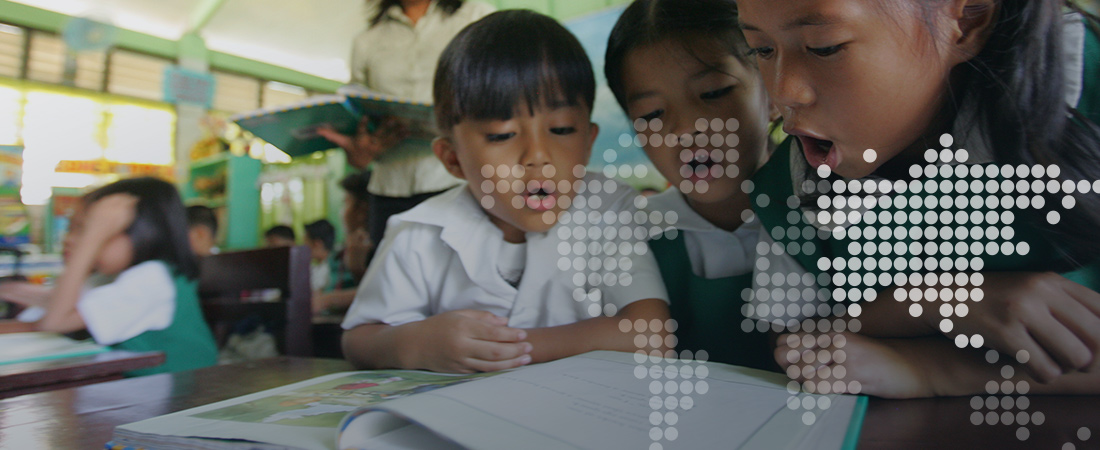
EDC's work to strengthen literacy instruction has improved outcomes for millions of students in the Philippines.
With one quarter of the population between the ages of 10 and 24, the demand in Southeast Asia for education and economic opportunity is greater than ever. EDC’s efforts in Indonesia, the Philippines, and the Lower Mekong to create meaningful opportunities for youth by aligning public, private, education, and industry partners have been successful, reaching hundreds of thousands of young people.
EDC is also improving elementary and basic education for younger children though high-quality literacy programs, teacher professional development, and policy implementation. And we are fighting drug abuse and HIV/AIDS through programs that help people develop the knowledge and behaviors they need to chart a long, healthy future.
Projects
Resources
This case study is one of the Sustainable Finance Initiative’s seven rapid country case studies studying the state of school meals programs.
This 2-page results document highlights the successes of the Bangladesh Youth Employment Pilot, which prepares young men and women for work, particularly in Bangladesh's traditional prawn farming industry.
Over twelve months in 2018-2019, the Accelerating Work Achievement and Readiness for Employment 2 (AWARE 2) project, funded by J.P.
The Decentralized Basic Education Program-Objective 2 (DBE 2) is improving the quality of teaching and learning for almost 15,000 teachers and over 230,000 students in Indonesia. This Annual Report Summary illuminates impact data and highlights the stories of some of those touched by the program.
These free online training courses are designed to help entrepreneurs learn what they need to know to establish and grow a business. Users learn at their own pace in their own time.
This program note summarizes key gender issues in livelihoods and workforce development programs and discusses EQUIP3's approach to addressing gender, using examples from specific EQUIP3 youth projects to illustrate lessons learned.
As noted in its executive summary, this report looks at school meals “aid delivery through different windows, both to shed light on financial flows—and to explore discrepancies in the data.” It hig
Overview of EDC's higher education institution experience providing market-relevant job skills for youth, resulting in successful entry points into the world of work.
In this midterm evaluation of the Basa Pilipinas project in the Philippines, EDC tracked and measured changes in student reading performance.
This program note presents summary findings of an evaluation study of the global Hewlett-Packard Learning Initiative for Entrepreneurs (HP LIFE) program, conducted in China, India, Kenya, Nigeria,